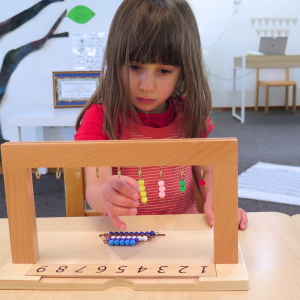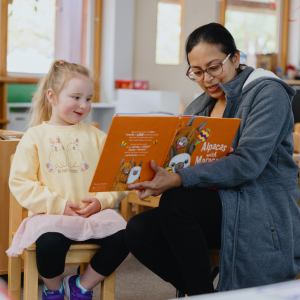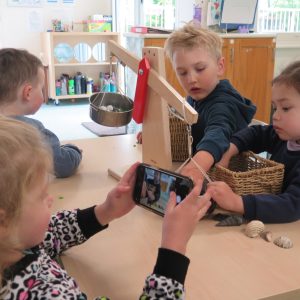At Community Services#1 (CS#1) we approach school readiness with a significant emphasis on play-based learning. The education system recognises that early childhood development is best supported through engaging and interactive experiences. Play-based learning fosters essential skills like problem-solving, social interaction, and creativity, which are crucial for a child’s smooth transition into formal education. This approach encourages children to explore their interests and develop a strong foundation for future learning, ensuring they are well-prepared for the challenges of primary school.
There are may ways you can help your child be ready for the transition to primary school.
Social Skills
Preparing for school involves having a genuine interest in and patience with others, the ability to learn from peers, initiate contact and play, build friendships, take turns, share, and play cooperatively. Adhering to rules and actively listening during group activities are also vital social skills.
Emotional Wellbeing
Children must develop self-confidence, the ability to work independently, emotional management, empathy, and the capacity to separate from caregivers easily. Coping with changes and effectively dealing with problems and challenges are essential aspects of emotional readiness.
Independence
A child demonstrating independence includes developing self-care skills, such as independent toileting, taking care of personal belongings, dressing unassisted, and feeding oneself with utensils. Fine motor skills, like drawing, cutting, and threading, and gross motor skills, such as running, climbing, and balancing, contribute to a child’s overall independence.
Language and Communication
Language skills are crucial for school readiness. Children should be capable of focusing and following multi-step instructions for longer periods, responding appropriately to questions, forming more complex sentences, and maintaining conversations with peers and adults. Additionally, speech sounds and intelligibility are important factors.
Early Literacy Strategies
Promoting early literacy involves encouraging children’s awareness of books and print, as well as their narrative skills. Engaging in conversations about story events, introducing new vocabulary, and exploring printed text on the page can be beneficial. Activities that enhance phonological awareness, such as identifying initial sounds, counting syllables, and recognizing rhymes, support language development.
How Can Parents Prepare Their Child for School?
Parents can support their child’s school readiness by communicating with their child’s educators to understand the specific areas of focus. Additionally, parents can talk positively about school, read books with positive school-related themes, and discuss what to expect at school. Visiting the child’s new school, attending orientations, and practicing self-care skills are also helpful.
Encouraging regular sleep, outdoor play, family time, and providing opportunities for independent decision-making and problem-solving further bolster school readiness.
Tips for Starting School
- Encourage a positive attitude towards school. Ask your child how they are feeling.
- Keep things simple.
- Consider convenient clothing options, like Velcro closures.
- Ensure easy access to school essentials in their bags.
- Use lunchboxes with easily accessible, cut-up food for convenient eating.
- Help your child problem-solve various scenarios, such as what to do if they feel unwell or need assistance.
- Encourage your child to know whom to approach if they have concerns or can’t find their belongings.
- Discuss who will pick them up and where they’ll be waiting.
Questions to Assess School Readiness:
- Can they make independent decisions and follow through?
- Do they express their own ideas?
- Can they follow multiple instructions simultaneously?
- Do they adapt easily to new activities?
- Can they separate from their parents or caregivers without difficulty?
- Do they display interest in interacting with other children?
- Can they effectively interact with their peers?
- Are they capable of recognizing and expressing their feelings and needs?
- Can they concentrate on a task?
- How do they handle frustration?




